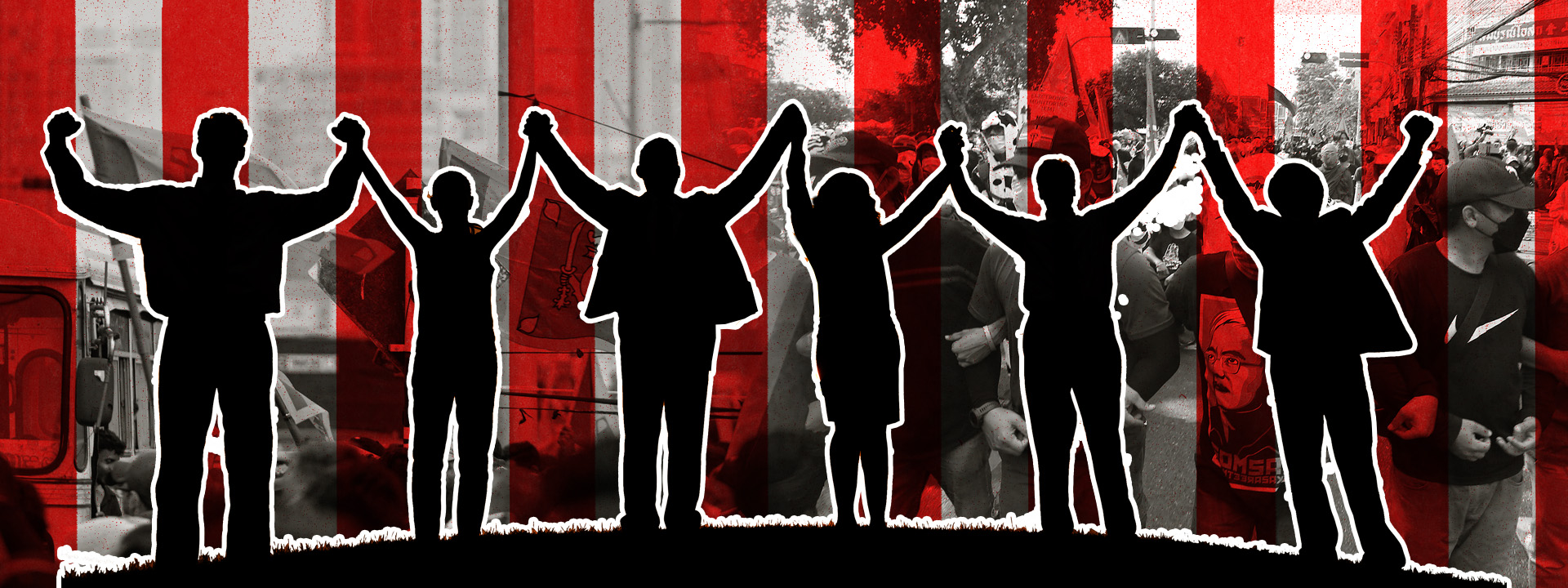|
Getting your Trinity Audio player ready...
|
A
sia and autocracy have almost become interchangeable terms these days, but rights activists and democracy advocates have been pushing back without let-up. There is a nagging issue, however, that keeps on cropping up in discussions among rights and democracy advocates: the efficacy of social movements, and the difficulties to organize one in the first place. It was no different at advocate huddles late last year at the Asian Democracy Assembly in Bali, Indonesia, with the issue front and center most times.
Democracy activists across Asia also face a double burden. On one hand, their communities are becoming more politically polarized, which poses a direct challenge to efforts to build cross-community alliances and mobilize people. On the other hand, efforts in creating democratic space are deeply reliant on well-coordinated movements as the ultimate wager against autocratic state power.
Nonetheless, this deadlock is not unsolvable. From Indonesia to India, movements have shown that with skillful organization, the push toward democracy might arise from rather unlikely places and people. What they share in common is an understanding of their core strengths—and a way to preemptively counteract their potential weaknesses.
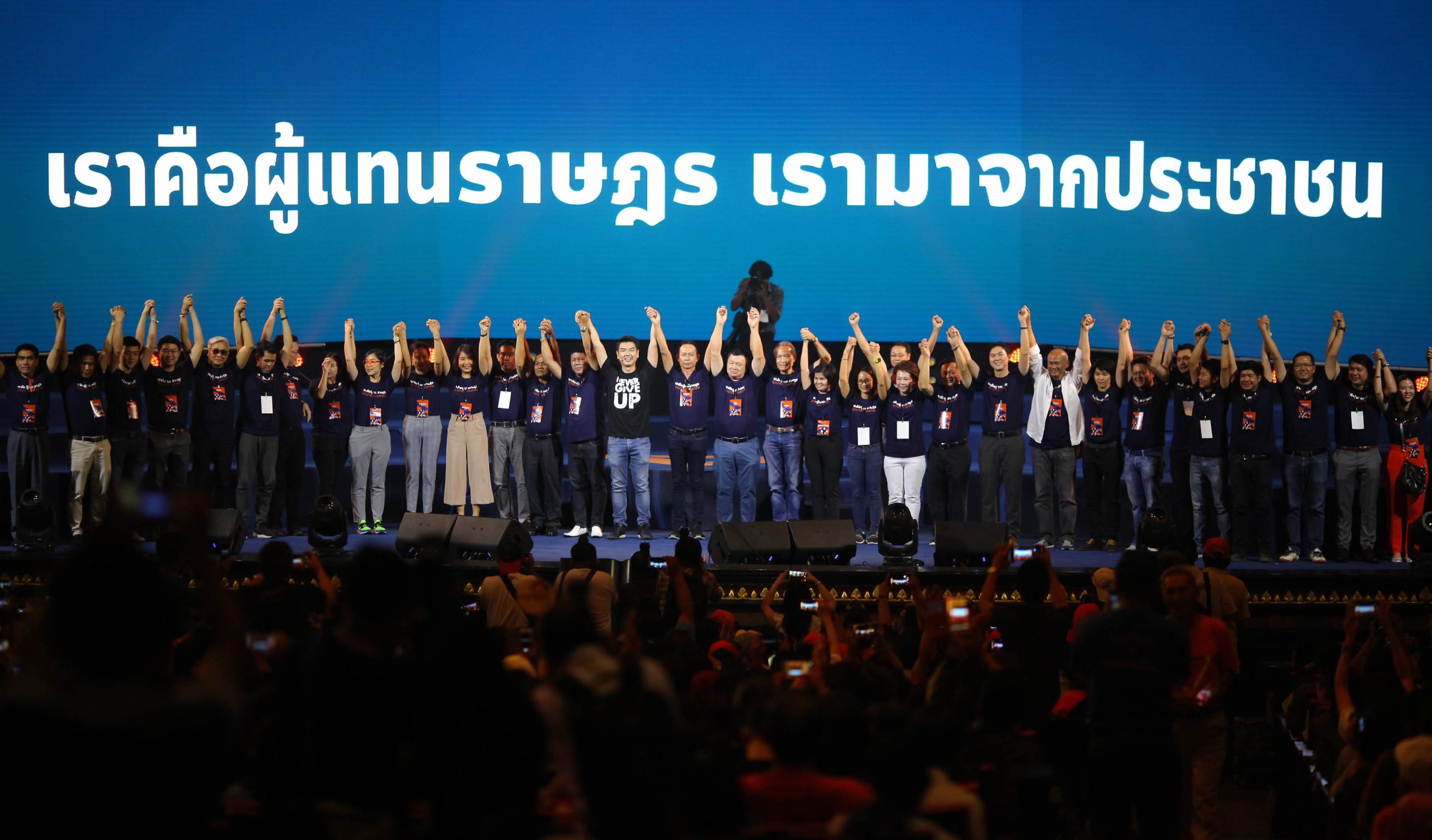
For Indian activist Rajagopal PV, the penultimate stake for democracy activists across Asia is in “transforming the state.” That is, to increase state capacity in conducting a dialogue with its constituents. Acts of violence committed by the state, including the countless acts of oppression toward activists, are a symptom of the state’s lack of capacity in engaging with opposition forces. The wager here, he said, is to transform social movements into a force that cannot be simply ignored anymore.
“I think many NGOs will have to move from a service delivery mode to more of an organizational work,” Rajagopal said. “People will have to move from the comfort zone of service delivery to mobilization. We need a political style of work that is going to give us long-term results, and not small deliveries.” He admitted, though, that “scaling up the movement is also a challenge because we understand small moments are going to face repression very fast.”
The perils of demobilization are perhaps clearest in Thailand. In 2019, the newly formed Future Forward Party (FFP) that consisted mostly of youth, managed to acquire the third highest number of parliamentary seats in the elections. It had built upon the national movement for democracy (which, among others, aims to hold the monarchy more accountable). But FFP was dissolved by the Thailand Constitutional Court soon after the vote over accusations of breaching campaign-finance policies, with several of its leaders facing a 10-year ban from participating in politics.
According to Kunthida Rungruengkiat, former elected Member of Parliament for the FFP, the problem with Thai politics is that it prevents opposition forces from “scaling up.” In the past 22 years, she noted, the Thai Constitutional Court has dissolved 110 political parties, hindering the growth of democratic politics in the nation. Even if a progressive party managed to secure seats in Parliament, their agendas are likely to be outvoted by the 250 military-appointed members of the Thai Senate.
“This all leads to the largest challenge we are facing back home in Thailand, and that is people losing faith in the parliamentary process,” said Kunthida. “The statistics are pretty clear: our structural bodies are not performing well. What scores well, however, is our civic participation. So people are trying to participate, but mobilizing them has become extremely difficult and challenging.”
After its dissolution, the FFP opted to break down its network into smaller organizations: a new “Move Forward Party,” an independent social-movement network, as well as a social foundation. This move illustrates the unrelenting grit of Thailand’s democratic endeavors, but Kunthida recognizes the transformation’s organizational caveats: “It has become quite challenging synergizing them together compared to the past, when we were one organization trying to move the same social agenda.”
“Swarms” and social-media bubbles
One obstacle in pursuing the “scaling-up” strategy pertains to the stubborn populist fear-mongering problem: when people actually mobilize, they tend to do so under the banner of hateful ideologies of a religious or nationalist slant. Around the world, those on the Far Right seem to be much more well-equipped in organizing themselves compared to democratic, liberal, or left-leaning groups. Several social-movement scholars designate contemporary illiberal populist currents as a “swarm”: their success lies in constructing an ecology that feeds off one another — from churches to YouTube preachers and think tanks to paramilitary groups.
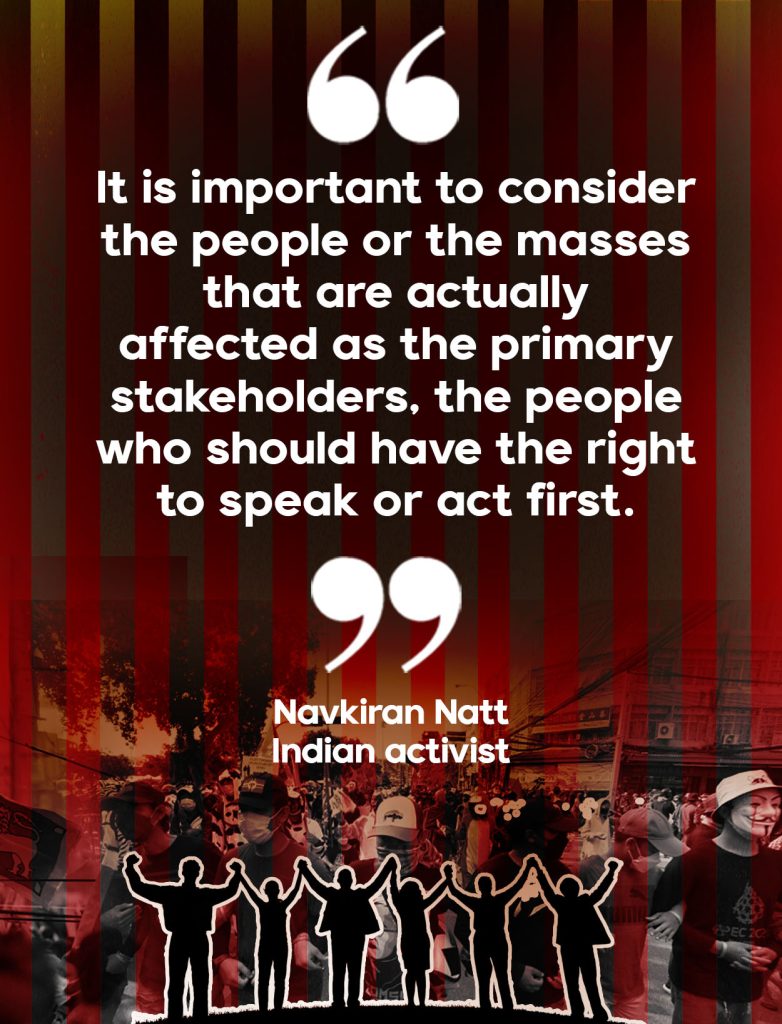
And of course, there’s the hellscape that is social media. Observed Pakistani media activist Sadaf Khan: “Whether it’s Facebook, Twitter, Instagram, Tiktok … whatever your chosen poison is, it will create bubbles of conformity. This is an era which structurally tells groups of people that they are threatened by every other ideology — whether it’s a Western ideology, religious ideology, Indian ideology — and so, your own ideology and faith become predominantly the lens through which you are consuming political information.”
Khan argued that social-media bubbles have serious implications for democratic activists. In her own experience as a journalist and civil society actor, she finds the need to increasingly appeal to the specific worldviews of people when advocating gender rights or human rights — that these are not per se Western agendas, but aspirations that fall in line with one’s own belief.
“The approach to advocacy now is how to [make oneself appealing] to ideologues that nonetheless have horrific human rights problems,” Khan said. “And I cannot openly challenge them without putting my life at risk of derailing the whole movement.”
Indeed, the Pakistan experience shows that confronting autocratic enemies head-on can lead to serious ramifications. Khan recounted how the annual march on International Women’s Day in Pakistan — also known as Aurat March — was repressed through state surveillance: “The working women who were convinced to come and march with us … their husbands beat them up later. They were contacted by the powers that be. Some of them were paid off, some of them were threatened. But in the end, as civil-society leaders, we cannot offer an iota of safety to the people we are asking to come to the streets.”
Safe space as strategy
The grave problems faced by Pakistani women activists are shared by gender-equality movements elsewhere in Asia, especially in societies where patriarchy and violence against women remain rooted as ordinary facets of life.
Such is the case in Indonesia. Yet, a novel, emerging approach for advocating women’s rights in the country has shown signs of fruition.
“In Indonesia, every debate has to do with religion,” said Ruby Kholifah of the Asian Muslim Action Network. “We don’t have any other choice … it’s just here and you have to use it, or embrace it. [You need to champion] religious leaders that have progressive voices to actually win the debate.”
Many of those “progressive voices” belong to the Congress of Indonesian Women Ulemas (KUPI), a network of female clerics from across the country that acts as a hub for forging and sharing an understanding of Islamic faith from the point of view of Muslim women. In Indonesia, the title of “Ulema” is traditionally (albeit not exclusively) bestowed to men. Consequently, this enables female ulemas to assume the unlikely strategic role of advocating issues pertaining to women as religious authorities. Recently, the network played an important role in the ratification of two important Indonesian policies: the law against sexual violence and crime and raising the national minimum legal marital age to 19 in order to eradicate child marriage.
To Kholifah, the Congress’s strength lies in the fact that it functions as an umbrella organization: women ulemas are understandably at risk when they individually voice out their understanding of Islam that might run against the more mainstream, patriarchal interpretations. As such, the umbrella becomes a safe space that allows them to more confidently move as a collective.
Such safe space also allows its members to collectively formulate their own understanding of Islam beyond the standards of men — a process that might be considered taboo beyond this circle. Together, women ulemas hold discussions on how female Muslims view notions of justice, equality, and fairness, and disseminate this collective knowledge to their followers.
“We do not use religious texts for dialogue, as this will lead everyone to stick to their position and defend their reference as the best,” said Kholifah. “Instead, we use the personal journeys of people to understand religious teaching. For example, do you think wearing the hijab is compulsory? Can you tell me what makes you think like that? This actually brings us to a level of empathy, and helps us to calm down if someone has a different opinion.”
Locating the movement centerpiece
A successful movement, then, will likely employ some mechanism to mitigate its internal differences. Hateful ideologies have their appeal in sameness, by offering people the promise that their ethnic/national/religious identities can be fully realized. Democratic movements tend to have no such privilege. Instead, their strength lies in openness, building their ranks by welcoming people from different walks of life to join the same struggle. Such social-base heterogeneity makes organizing all the more complicated — but can turn out to be an invaluable resource.
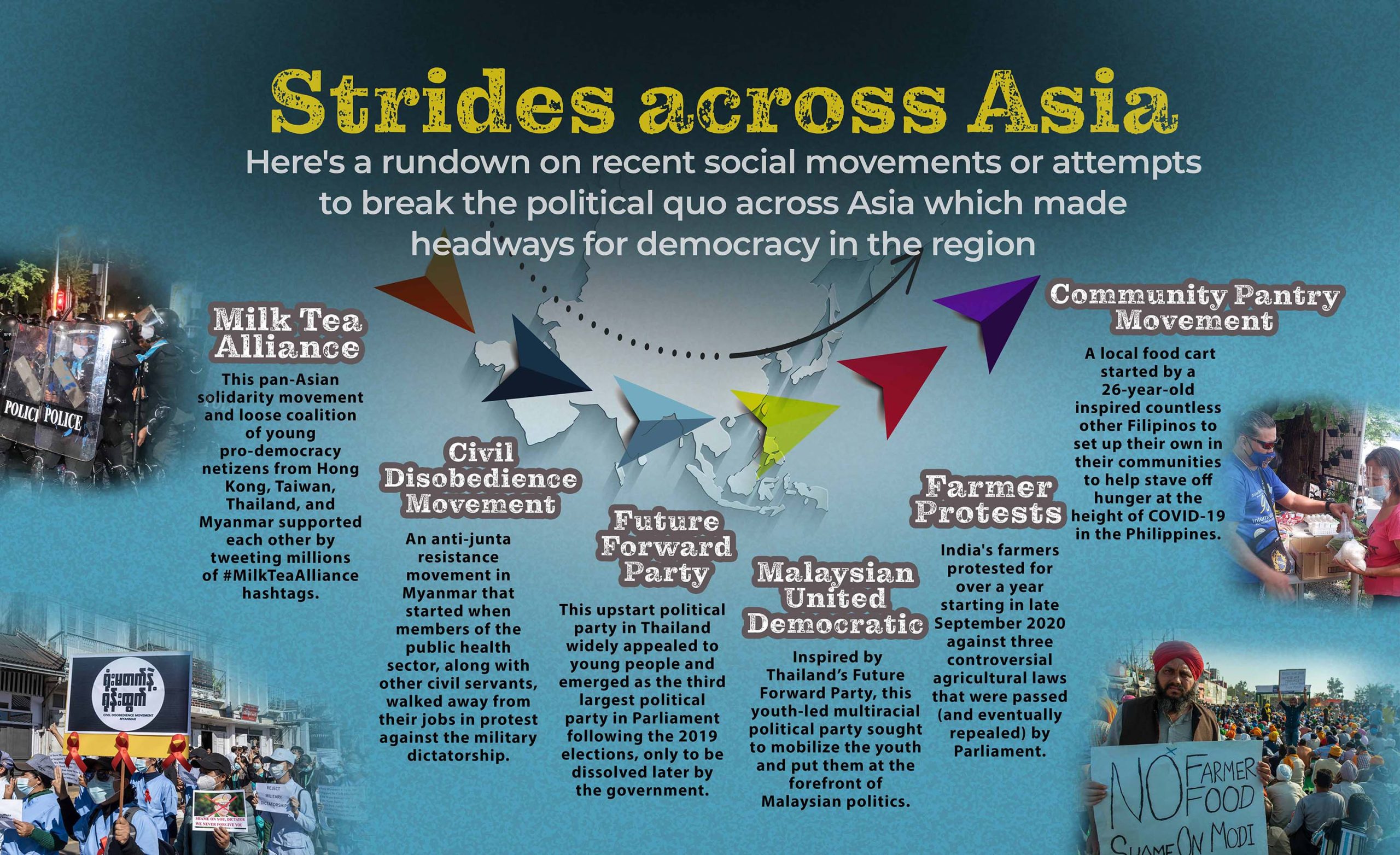
Perhaps one of the biggest success stories to date of mass mobilization in Asia is the Indian Farmers’ Movement, which was instrumental in the repeal of three agricultural reform laws passed by Narendra Modi’s government. While Modi’s ethnonationalist Bharatiya Janata Party claimed that these policies would modernize India’s farming production system, farmers believed these would lead to their large-scale displacement while favoring corporate agribusiness. And so hundreds of thousands of peasants from India’s breadbasket provinces of Punjab, Haryana, and Uttar Pradesh camped on roads leading to New Delhi for almost a year, disrupting distribution routes to the nation’s capital.
According to then-student activist Navkiran Natt, one strength of the farmers’ movement lay in a clear understanding of the division of roles within the protest movement. While thousands of young activists like Natt took part in the blockades and used social-media strategies to amplify the movement (successfully drawing attention from international figures such as American pop star Rihanna and Swedish environmental activist Greta Thunberg), they were well aware that this was a movement led by the farmers themselves.
“It is important to consider the people or the masses that are actually affected as the primary stakeholders, the people who should have the right to speak or act first,” Natt said. Having the displaced people as the centerpiece of farmers’ protests was not simply an ethical choice; it was also a strategic one.
Natt added that farmers were able to conduct a months-long peaceful occupation in the protest sites because other people in their village or neighborhood were still taking care of their land. Meanwhile, a system of food provision derived from the Sikh Tradition (whose adherents mostly come from the agricultural northeastern state of Punjab) ensured that people in the encampments were well-fed.
He, however, conceded that these long-term strategies might not apply if the core stakeholders are different. “Just imagine if it was a workers’ movement,” she said. “How can a daily-wage worker afford to sit for one long year without feeding their families and earning their daily wages? It is important to look at these movements critically, because it is only then that we are able to do larger coordination.”
A universal goal
India’s experience in this regard echoes the lessons exemplified by the Indonesian women ulemas: the movement itself is strengthened when it acts as an umbrella “safe space” for different groups to manage their differences. The farmers’ movement in India was able to cut across class, gender, regional, and religious divides. For instance, the farmers received significant support from Dalit organizations and unions even if historically farmers’ movements in India were seen to be inimical to Dalit interests.
To successfully forge alliances with hitherto unthinkable groups serves as an effective litmus test for democratic movements. This is especially true when a marginalized populace assumes an important role within the democratic imaginary.
Ryan Silverio, executive director of the ASEAN SOGIE (Sexual Orientation, Gender Identity and Expression) Caucus, recounted his dilemma that perhaps echoes the struggle faced by LGBTIQA activists like him in their efforts to work alongside other rights activists: “When I was preparing for my presentation [at the gathering in Bali], I was faced with existential issues. Do we [LGBTQIA activists] consider ourselves as pro-democracy activists? How have we, within our network in Southeast Asia, contributed to the ongoing work of [fighting for] democracy?”
“[Thus far], LGBTQIA activists have accessed and engaged spaces of power to shape and institutionalize LGBTQIA-inclusive human rights norms,” he said. “We don’t yet have a global standard that recognizes the rights of LGBTQIA+ persons. You’ve got one for women’s rights. You’ve got the CRC [Convention on the Rights of the Child] for children’s rights. But there’s no declaration or convention for us.”
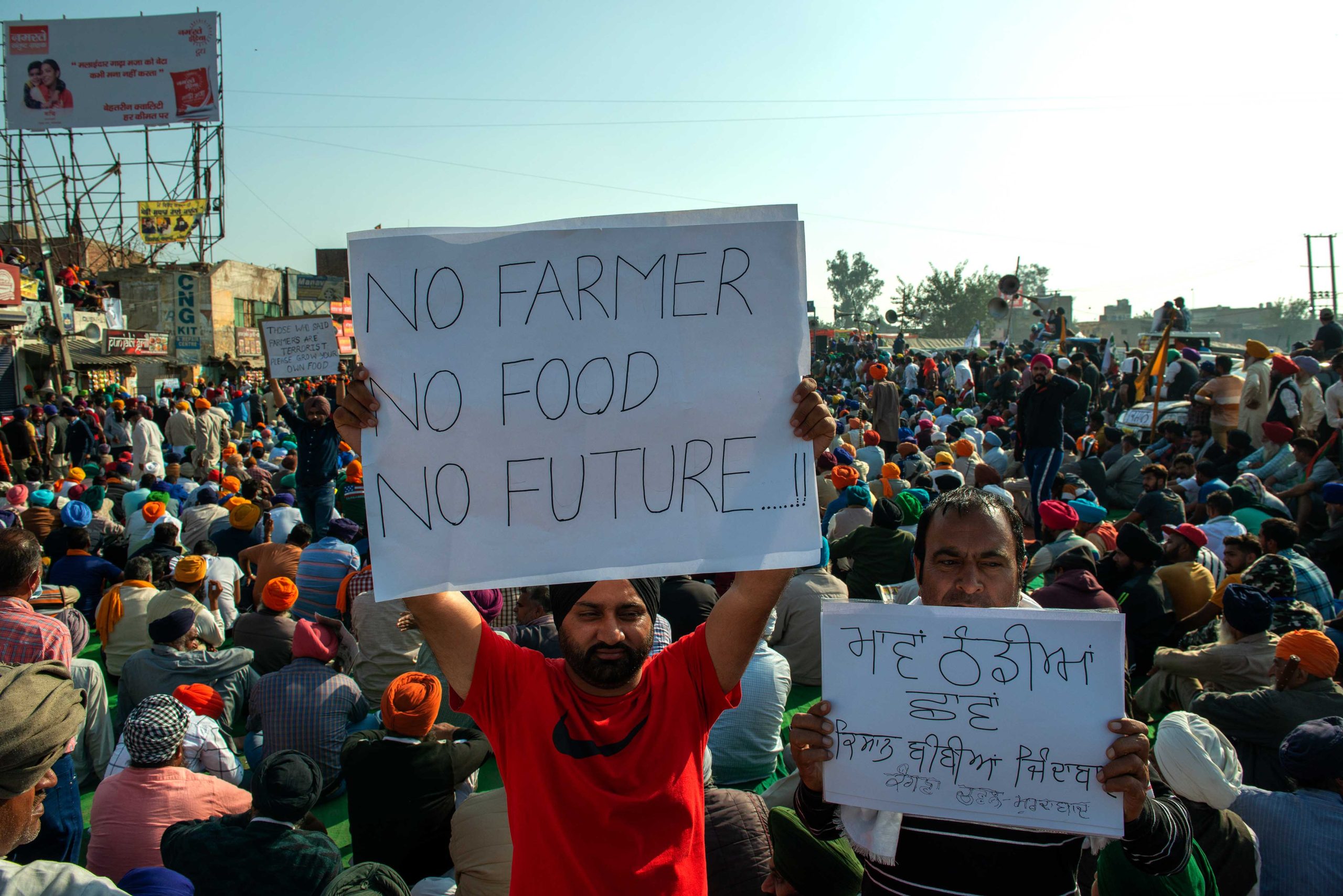
In Bali, Silverio presented a photo of a drag artist from Myanmar protesting against the military coup — an act of bravery and defiance that has inspired many other artists, especially those from queer communities.
The picture made clear that the struggle for democracy is one that can only be viewed from particular identities, but whose ultimate stake lies beyond any particular identity. In the case of Myanmar, LGBTIQA activists are marching to the streets — some in drag — because the heteronormative and transphobic military junta poses an existential threat not only to queer people, but to everyone. In truth, in the face of injustice and demagoguery, the collective struggle of pro-democracy actors makes it impossible to be disconnected from others. Being in the same boat is where their strength lies.◉










